 W
WThe Global Language Monitor (GLM) is a company based in Austin, Texas that collectively documents, analyzes, and tracks trends in language usage worldwide, with a particular emphasis upon the English language. It is particularly known for its Word of the Year, political analysis, college and university rankings, High Tech buzzwords, and media analytics.
 W
WThe Goa Konkani Akademi is an organization set up by the Government of Goa in 1986 to promote the Konkani in Goa. Its stated aim is to accelerate the pace of development of Konkani by encouraging writers, researchers, etc. and to bring Konkanis from all areas together.
 W
WThe Human and Social Sciences Library Paris Descartes-CNRS is one of the most important French libraries concerning sociology, linguistics and science education. The library collaborates with BNF as an associated pole on topics such as health and public policy, Ethics and bioethics, Health sciences and society, drug use and abuse, social psychology.
 W
WThe Institute for Linguistic Studies of the Russian Academy of Sciences, commonly abbreviated ILS RAS, is a research institution in Saint Petersburg, Russia and one of the major centers in the field of linguistic research in the country.
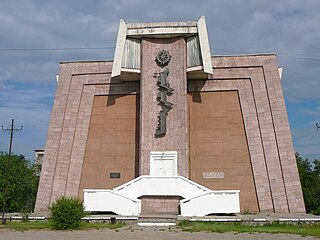 W
WInstitute for Mongolian, Buddhist and Tibetan Studies of the Siberian Branch of the Russian Academy of Sciences is a public research institution in Ulan-Ude, Russia, and a constituent institution for oriental studies under the Buryat Science Centre of the Russian Academy of Sciences. It was founded on July 1, 1922 as the Buryat Scholarly Committee under the leadership of Bazar Baradin, with the objective of studying history, language, and culture of Buryatia. In 1949, it entered the Siberian Branch of the Academy of Sciences of the USSR under the name of Buryat-Mongolian Scientific and Research Institute of Culture.
 W
WThe Institute for the Languages of Finland is a governmental linguistic research institute of Finland geared at studies of Finnish, Swedish, the Sami languages, Romani language, and the Finnish Sign Language.
 W
WThe Institute of Croatian Language and Linguistics is an official institute in Croatia whose purpose is to preserve and foster the Croatian language. It traces its history back to 1948, when it was part of the Yugoslav Academy of Sciences and Arts. The modern institute dates back to Croatia's independence in 1991.
 W
WThe Institute of Linguistics of the Russian Academy of Sciences is a structural unit in the Language and Literature Section of History and Philology Department of the Russian Academy of Sciences. This Institute is one of the major centers in the field of linguistic research in Russia, and is also a center for the Moscow School of Comparative Linguistics.
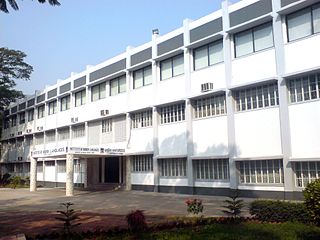 W
WThe Institute of Modern Languages (IML) is an institute of the University of Dhaka in Bangladesh dedicated to teaching various modern languages including Bengali, English, French, German, Russian, Spanish, Italian, Arabic, Persian, Turkish, Mandarin Chinese, Japanese, Korean, and Hindi. Four levels of certificate courses are offered for each language, Bengali being the only language exclusively reserved for foreign international students. B.A Honours programs in English, French, Mandarin Chinese and Japanese have been recently added to the curriculum, where an additional Masters program was added to the English curriculum. For junior courses, a student must obtain at least G.P.A. 2.5 in higher secondary exam. For upper certificate courses, he must pass admission test. Anyone passing DU admission test from B or D unit will be eligible to enroll for honours courses.
 W
WInstitute of Philology of the Siberian Branch of the RAS is a research institute based in Akademgorodok of Novosibirsk, Russia.
 W
WThe Institute of the Lithuanian Language in Vilnius is a state-supported research organization that focuses on research into the Lithuanian language. The Institute of the Lithuanian Language is a research establishment with longstanding traditions. Founded in Vilnius back in 1941 on the basis of the Institute for Lithuanian Studies of Antanas Smetona. Today it is a state-level research body of special national importance.
 W
WThe School of Irish Learning was a center for Irish studies in Dublin founded in 1903 by Kuno Meyer, who talked of "the necessity of bringing the [Irish revivalist] movement into direct and intimate relations with scholarship, to provide an avenue for every student of Irish to the higher regions of study and research, to crown the whole edifice by a revival of native scholarship, and thus to bring about a second golden age of Irish learning." The School's Honorary Secretary was R. I. Best, and among the first students were Osborn Bergin and T. F. O'Rahilly. The School published books on language and history which remain standard textbooks for undergraduate courses in Irish, and in 1904 it instituted the scholarly journal Ériu, of which Meyer was the editor.The principal object of the School was to provide a thorough professional grounding in linguistics, philology, and textual studies for students who had an advanced competence in Irish and Celtic languages. Instruction was for the most part organized in the form of intensive Summer Schools which were conducted by distinguished scholars invited from overseas, e.g. by Holger Pedersen, Henry Sweet, and Rudolf Thurneysen. John Strachan had a more central rôle, almost equal to that of Kuno Meyer himself. Because its activities were organized in this way, and because it had to depend on uncertain sources of funding, the School from the outset had the character of a temporary expedient... Inevitably, the School would become largely redundant once effective undergraduate and postgraduate training in Irish and Celtic languages had been properly established in Irish Universities...
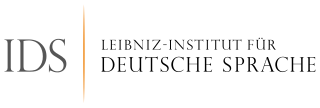 W
WThe Leibniz Institute for the German Language in Mannheim, Germany, is a linguistic and social research institute and a member of the Leibniz Association. Under the leadership of Prof. Dr. Henning Lobin, director of the Institute, and Prof. Dr. Arnulf Deppermann, vice director of the institute, IDS employs a staff of about 160. The IDS was established in Mannheim in 1964 and is still headquartered there. It is the central extramural institute for research and documentation of the German language in its contemporary usage and its recent history. As a member of the Leibniz-Gemeinschaft (Leibniz-Association), the IDS is financed both by the federal government and by the state of Baden-Wuerttemberg.
 W
WThe Miroslav Krleža Institute of Lexicography is Croatia's national lexicographical institution. Based in Zagreb, it was originally established in 1950 as the national lexicographical institute of the Socialist Federal Republic of Yugoslavia. It was renamed after its founder, the Croatian writer Miroslav Krleža, in 1983.
 W
WThe Faculty of Philology is one of the constituent schools of the University of Belgrade. The school's purpose is to train and educate its students in the academic study or practice in linguistics and philology.
 W
WRoots of Europe is an interdisciplinary research centre at the University of Copenhagen, focusing on prehistoric Europe. It is headed by Birgit Anette Olsen and involves more than 40 linguists, archaeologists, geneticists and other scholars from universities in Europe and the USA. The centre was initiated in 2008 and is financed through the University of Copenhagen Programmes of Excellence. It has close ties to the local programme in Indo-European studies. It is physically based at the Department of Nordic Studies and Linguistics and hosts the departmental collection of Indo-European linguistics handbooks.
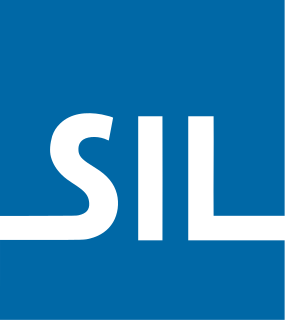 W
WSIL International is a evangelical Christian non-profit organization whose main purpose is to study, develop and document languages, especially those that are lesser-known, in order to expand linguistic knowledge, promote literacy, translate the Christian Bible into local languages, and aid minority language development.
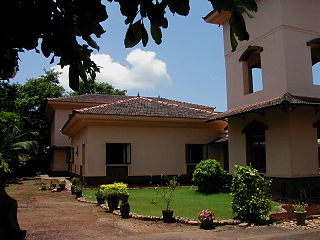 W
WThomas Stephens Konknni Kendr (TSKK) is a Jesuit research-institute working on issues related to the Konkani language, literature, culture and education. It is based in Alto Porvorim, on the outskirts of the state capital of Goa, India.
 W
WThe Vietnamese Nôm Preservation Foundation, shortened as the Nôm Foundation and abbreviated as VNPF, is an American nonprofit agency for language preservation headquartered in Cary, North Carolina, with an office in Hanoi, Vietnam. Established in 1999, it has been engaging in the preservation of Chữ Nôm script remained in manuscripts, inscriptions and woodblocks.
 W
WVõro Institute is an Estonian state research and development institution dedicated to the preservation and promotion of the Võro language and culture.